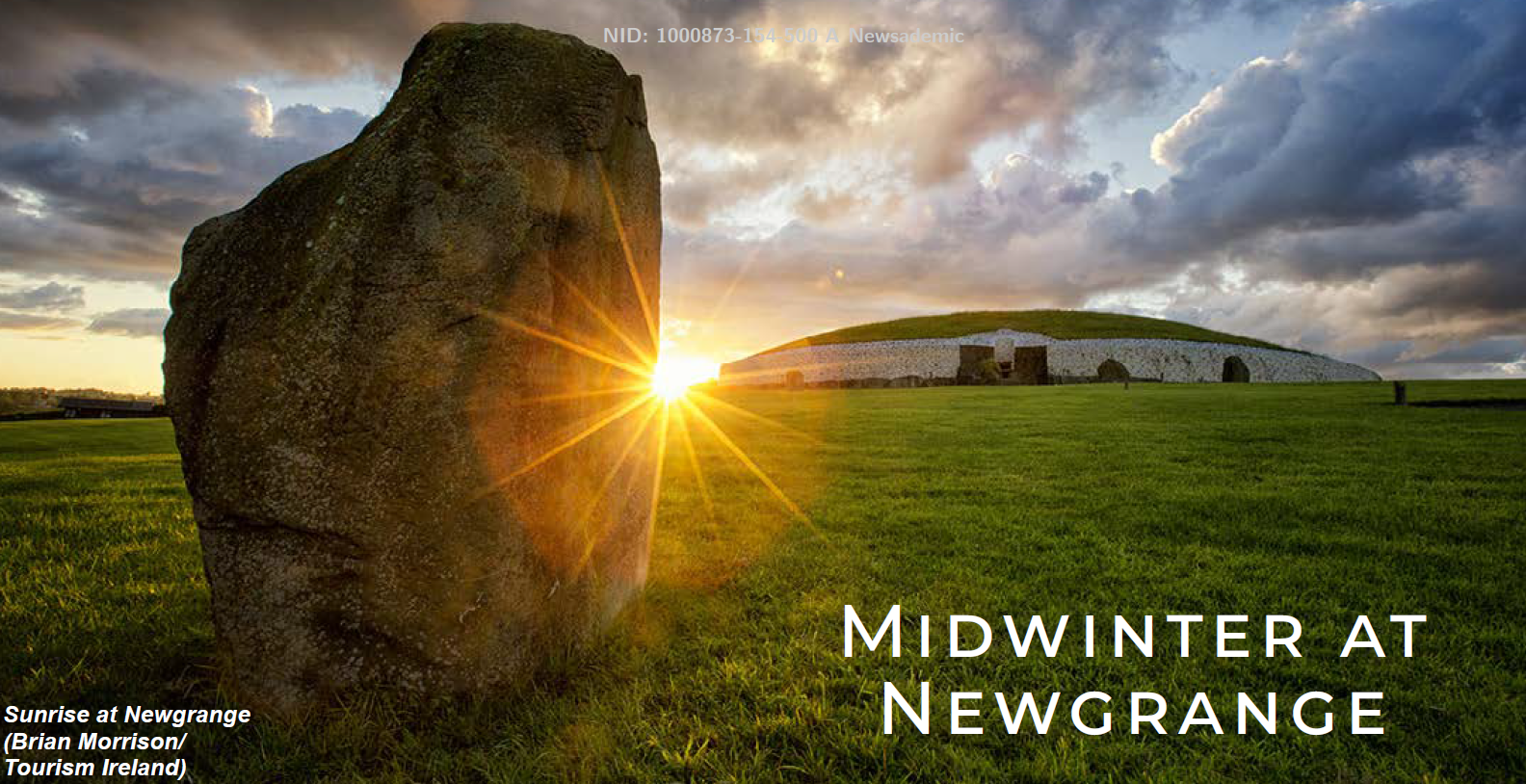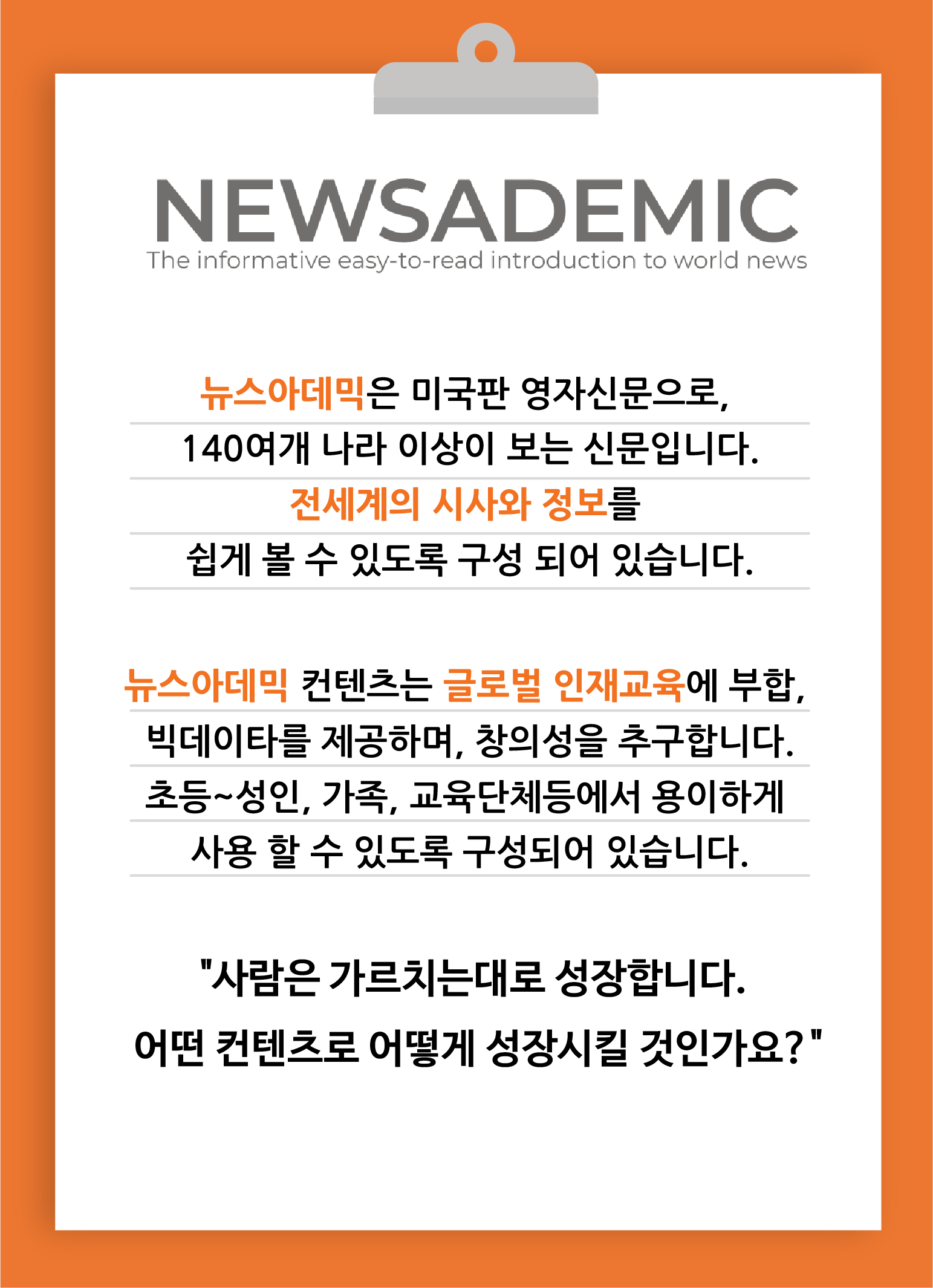뉴스아데믹 회원으로 더욱 많은 서비스를 이용하세요.
로그인 정보를 잊어버리셨나요?
아이디 찾기 / 비밀번호 찾기
or
뉴스아데믹이 처음이신가요? 회원가입
 Wow
Wow
Newgrange is an ancient monument. In Ireland, it is more than 5,200 years old.Newgrange is a large mound. It is made from rocks and soil. Newgrange has an inner 19-meter-long passageway.In winter, the hours of darkness are longer. Midwinter Day has the longest hours of darkness. In the northern hemisphere, midwinter is on December 21 or 22. After Midwinter, the days start to get longer.Newgrange’s design marks Midwinter Day. On this date, at sunrise, the sunlight enters the passageway.There are carved lines on the passageway’s back wall. For 17 minutes, on Midwinter Day, the sunlight shines on them. It does not do this on any other day of the year.Each year, more than 200,000 people visit Newgrange. Many go in the early morning on Midwinter Day to see the sunrise.In 2000, the Irish government started a lottery for free tickets. Winners could bring one guest and stand at the end of the passageway. The lottery was for mornings between December 18 and 23.In 2024, 18,000 people joined the lottery. The winners were from Austria, the United States, and Ireland. On December 21, they watched as the sunlight lit up the back wall.


Manager’s Con Answer: No, Mayotte should not continue to be part of France. Mayotte should be an independent country. The people of Mayotte should not depend on France. France is far from Mayotte. The people cannot easily get help when they need it. Mayotte should have its own government. France can just help them grow their economy.

 최신 앵커
최신 앵커

Manager’s Pro Answer: Yes, Mayotte should continue to be part of France. France can help the island in many ways. France has money and resources to support Mayotte, especially after the cyclone. Many people in Mayotte are poor. France can support them with healthcare and education. Staying part of France can bring more benefits to the island.